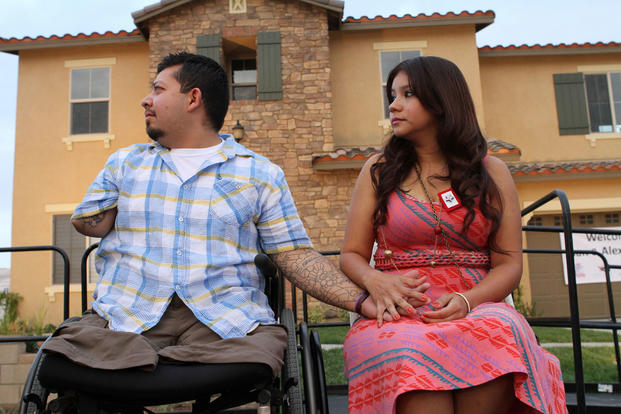As a military caregiver, it can be hard to stay in the loop on what's going on with my husband, an Army veteran who gets regular treatment for a mild traumatic brain injury (TBI) and his persistent migraines. He has countless appointments through our local Veteran Affairs (VA) hospital. We work together to make sure he's getting what he needs and can keep track of everything.
But for me, and for many caregivers like me, doing so is really hard. I can’t attend all his appointments, and what's said or decided there simply doesn't always make it back to me. Blame the TBI for the disconnect, blame the care team for not making sure I stay in the loop or blame me for not keeping up with it all. No matter the reason, it just doesn't happen. The result often is that his needs fall through the cracks, his appointments are missed or left unscheduled and care that he should be receiving simply doesn't happen.
But now the Department of Veterans Affairs has plans to field a new provider training program aimed at making it easier for caregivers have information on what their veterans need, regardless of whether they attend all appointments.
The new training, called the Campaign for Inclusive Care, is being rolled out Thursday in partnership with the Elizabeth Dole Foundation, which advocates for military caregivers, and USAA, which is funding the effort.
"We know that our providers are always used to speaking to patients, and we have to remember that patients can't always paint the full picture, or won't always paint the full picture," said Lisa Pape, the deputy chief for patient care services at the VA. " … We can't be with the veteran 24 hours a day but that caregiver is, and we can't always know what's happening."
The disconnect between what's said to the patient and what gets communicated to the caregiver doesn't just happen in the veteran community or at the VA. And some of it stems from worries over patient privacy, which are not just ingrained in medical care culture, but are also a matter of law.
Yet because providers don't pause to ask who else might need to know what is happening at any given appointment, Pape said, no steps are ever made to make sure the people who need the information are getting it.
That's exactly what the new training seeks to address, she said. By helping providers keep caregivers top of mind, she hopes they can ultimately help veterans get better, more consistent care.
"It's really to raise awareness and educate providers on how to integrate caregivers into their treatment team," she said. "That should not be an afterthought -- we're working to make this the first thing that comes to mind."
To do so, they'll be providing three sets of in-person trainings in the Ohio region, Texas and the Pacific Northwest. They'll also be rolling out a 15 minute web-based education module for providers.
Roxana Delgada, a veteran research advisor, Elizabeth Dole Foundation fellow and caregiver for her veteran husband, said this kind of provider education is only going to become more important over time, as more and more veterans for the current wars seek medical help.
"I truly believe there's no success unless there's a team and the team starts at home," she said. "As veterans move forward and continue to have rehab for long term disability or long-term health care, the family member is the only constant variable there. If the healthcare system can embrace us as an important element of recovery and rehab, it's just a win-win."
In a perfect world, Delgada said, she would be able to log into a records portal after each of her husband's many appointments and simply review notes. That capability isn't available yet, said Pape, but it could be a possibility later as the VA updates its patient records system.
For now they'll focus on changing the communication culture, Delgada said.
"It sounds more simple than what it is -- developing a model of care, of delivery of care, that incorporates the caregiver into the treatment plan and care of the veteran," she said. "That's easier said than done because we're facing a culture. It's a culture change, it's a behavior changes and it's a policy implementation."
-- Amy Bushatz can be reached at amy.bushatz@military.com.










